Cwrdd â’r tîm

Dr Grazia Todeschini
Senior Lecturer
I joined the College of Engineering at Swansea University after six years of work in the power industry with the aim to use my experience to solve the challenges related to the integration of power electronics devices in the transmission and distribution systems.
The research topics I am working on include:
Development of advanced control systems to provide robust and reliable operation of power-electronics devices, and study of the interaction of these devices with the power system
Development of ancillary functions which help to support grid operation, including reactive power injection, power oscillation damping and harmonic filtering.
Assessment of the impact of harmonic components on power measurements
The tools used to perform my research include computer simulations, laboratory testing and field testing.
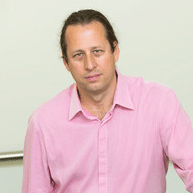
Professor Alan Guwy
Principal Investigator
Professor Alan Guwy is the Director of the Energy and Environment Research Institute (EERI) at the University of South Wales and the Head of the Sustainable Environment Research Centre (SERC). His research is focused on renewable generation of hydrogen, the optimization of anaerobic fermentation to produce bioenergy in the form of hydrogen and methane gas, bioelectricity using microbial fuel cells and bio-electrocatalytic systems water and wastewater treatment and analysis of recalcitrant pollutants.
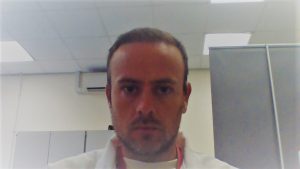
Dr Rodrigo Fernandez
Research Assistant
Rodrigo Fernandez Feito is a research assistant in the SERC since April 2017. Rodrigo completed his B.Sc and M.Sc in mechanical and industrial engineering at the University of Oviedo (Spain) and short after he worked as research assistant in the same university. Rodrigo started his PhD in the University of South Wales in 2014 and at the moment he is pending his viva. His research interests lie in the area of developing new instrumentation for online process monitoring and more specifically for monitoring and control of anaerobic digestion processes. During his PhD, Rodrigo developed a new analytical system to determine volatile fatty acids and he is currently working in its improvement for robust and reliable VFA online monitoring.
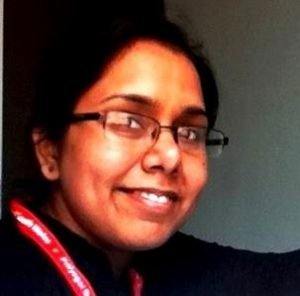
Dr Amandeep Kaur
Research Fellow
After finishing my “Bachelors in Science” and “Masters in Microbiology” from India I worked for 2 years as a Research Assistant at Institute of Microbial technology (CSIR-IMTECH, India) and gained experience in morpho-molecular identification and phylogeny of filamentous fungi; was also involved in sequencing of “mating-type genes” in Colletotrichum, the causal agent of anthracnose in chilli. In 2010, I moved to the United Kingdom to pursue doctoral studies at University of South Wales (USW) on Microbial Fuel Cells (MFCs) under EPSRC funded SUPERGEN Biofuel cell consortium Project. During doctoral studies the main focus of my research was use MFCs and their application for the measurement of volatile fatty acids (VFA) as the online measurement of VFAs is important in determining the state of many bioprocesses. After finishing doctorate degree I started working as Research Fellow at USW in 2015. The overall main focus of my research at USW is the treatment of waste water or other wastes by using bioelectrochemical systems (BES) which further under FLEXIS project specifically involves renewable hydrogen production using microbial electrolysis cell (MEC) and also integrating BES with other bioenergy systems for enhanced hydrogen production. I am also involved in collaborative NERC Resource Recovery from Waste programme’s MeteoRR using scale up BES tubular systems and LifesCO2R a collaborative project that mainly involves bioelectrochemical synthesis of fuels from CO2 reduction and its scale up.
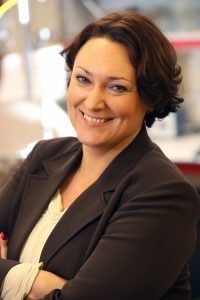
Dr Aleksandra Koj
Flexis Project Manager
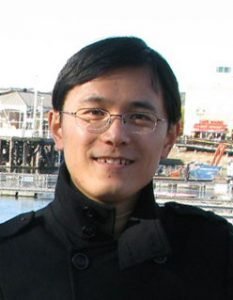
Dr Fan Zhang
Lecturer
Fan Zhang received PhD and MSc in Control Systems from the University of Sheffield in 2009 and 2004, respectively. His major research interests focus on modelling, control and optimisation of the renewable power generation and utilisation system, especially using hydrogen as an energy carrier for storage. His research includes dynamic system modelling and control at both individual component level as well as at system level, to ensure optimal integration of electrolytic / storage / fuel cell system with renewable electricity supply, as well as hydrogen system integration and application, such as stand-alone or grid connected renewable hydrogen system, renewable powered smart grid, fuel cell system application, and alternative fuel vehicles.

Sanjana Bushra
Research Assistant
Sanjana Bushra is working as a Research Assistant in operational management group of Flexis project. She is involved in the project engagement, delivery, networking, publicity and events. Sanjana completed her Masters of Engineering, MEng, in Architectural Engineering from Cardiff University and currently pursuing a part-time MSc in Construction Project Management in University of the West of England.
Dr Iain Michie
Research Fellow
Iain Michie completed an EPSRC SUPERGEN (BioFC) funded PhD at the University of South Wales investigating Microbial Fuel Cell anodic biofilms/reactor systems and was then subsequently employed as a Research Associate during the second phase of the BioFC SUPERGEN. He is currently a research fellow working on bioelectrochemical systems as part of EPSRC LIFE2CORE and NERC METEORR projects. His research interests lie in the production of energy products such as hydrogen, methane or electricity, and in understanding the dynamic development of electrochemically active microbial microorganisms and how these may be engineered as biocatalytic processes.
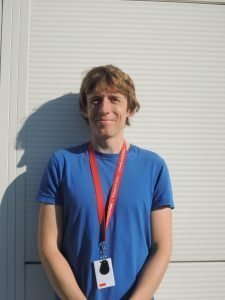
Dr Stephen Carr
Research Fellow
Stephen Carr is currently a research fellow at the University of South Wales, UK. He received his Mphys degree in Physics from the University of Oxford in 2004, and his PhD in energy systems modelling from the University of Glamorgan in 2010. He has worked on the UK Sustainable Hydrogen Energy Consortium (UKSHEC) Supergen project funded by the EPSRC, investigating the optimal use of hydrogen energy storage on electricity networks. His has recently worked on the CymruH2Wales project investigating renewable hydrogen systems, and the Innovate UK funded Island Hydrogen project investigating optimal operation of hydrogen refuelling systems for vehicles. His current research interests include electricity systems modelling, energy storage and hydrogen energy systems.
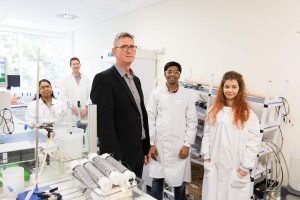
Giuliano Premier
Professor of Low Carbon Systems Engineering
Giuliano Premier (Professor in Low Carbon Systems Engineering) of the Sustainable Environment Research Center (SERC) has pursued research activities covering renewable energy systems, biological wastewater treatment, anaerobic digestion, biohydrogen production, hydrogen energy systems, microbial fuel cells and bioelectrochemical systems (BES), metrology, computer aided control system design, modelling and automatic control of bio- and bioelectrochemical processes. He has led and/or been co-investigator in several collaborative funded projects funded by EU FP, H2020 and ERDF, EPSRC, BBSRC, NERC, including current interests in NERC RRfW MeteoRR, EPSRC Lifes-CO2R, FLEXIS and H2020 RES-URBIS. Premier held the Chair of the BBSRC NIBB ADNet, Integration and Modelling; the Boimass and Waste to Energy in the Technical Committee of World Renewable Energy Congress (WREC), (2011-2017). Was awarded ‘Pioneer’ WREN 2016 and was Associate Editor of International Journal of Automation and Control (IJAC), on International or Scientific Committee of the SUPERGEN H2FC and several conferences inc. IWA 2013: Anaerobic Digestion AD13; IWA ICA 2013; UKACC 2014.
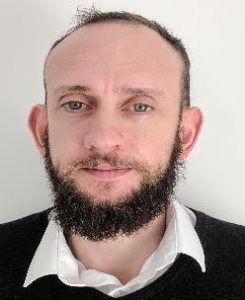
Dr. Jaime Massanet-Nicolau
Research Associate
My background is in industrial microbiology and biotechnology. Before Joining the University of South Wales I worked for Astra Zeneca and Thames water as a plant pathologist and microbial researcher respectively. I joined the University of South Wales as a PhD student in 2003, my thesis dealt with the biological production of hydrogen from sewage biosolids. I have since worked on a number of European projects related to bioenergy and biomaterials production.
My research interests involve adapting microbial processes to produce fuel and other useful compounds from waste materials and biomass. I develop anaerobic digestion methodologies than can cope with ‘real world’, structurally complex biomass types including, food waste, crop residues and wastewater biosolids. I also collaborate with my colleagues in the Sustainable Environment Research Centre (SERC) on novel ways to integrate anaerobic digestion with emerging bio-energy technologies such as microbial fuel cells, microbial electrolysis cells and electrochemical separation.
Recently I have begun to apply some of the concepts used in the anaerobic digestion of biomass, to the biological production of sustainable materials from other substrates such as waste gases, renewably produced hydrogen and carbon dioxide. I currently supervise two PhD students working in this field.

Rhys Jones
Research Assistant
Rhys studied B.Sc. Physical Geography and Geology at the University of Glamorgan and graduated in 2009. He later developed a keen interest in renewable energy and went on to study M.Sc. Renewable Energy and Resource Management at the University of Glamorgan in the academic year 2011/2012. He graduated with distinction and then worked for a year in the renewable energy sector, before joining SERC at the University of South Wales to begin work on his Ph.D. project entitled, Enhanced biological hydrogen production using extraction systems in 2013. He hopes to defend his thesis in summer 2017 and is currently employed as a research assistant at the University of South Wales. Away from academia, Rhys is a keen rock climber and musician.
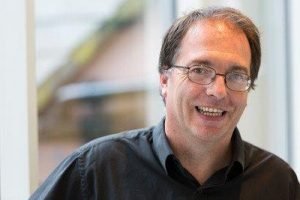
Professor Richard Dinsdale
Chair of Sustainable Environmental Systems in the Sustainable Environment Research Centre
Professor Richard Dinsdale`s first degree was in Applied Biology (Biotechnology) with his PhD in the field of anaerobic digestion. His research activities are directed at optimizing microbial cultures for the production of energy either as hydrogen, methane or directly as electrons from low grade biomass resources including wastes or other products such as volatile fatty acids and bioplastics. He has received funding either as principal investigator or co-investigator of over £6 million from the EPSRC, BBSRC, and NERC, the European Framework programs, European regional development funding or industry. I have been funded in 5 EPSRC SUPERGEN projects and was the scientist in charge of a FP6 Marie Curie project. He has supervised over 15 PhD students to completion. On the ISI database, he has over 80 international journal papers and an H Factor of 29.
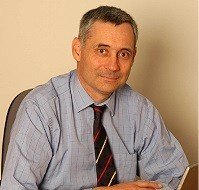
Professor Nick Jenkins
Principal Investigator
Nick Jenkins is the Leader of the Energy Theme in the School of Engineering at Cardiff University. Before moving to academia, his career included 14 years industrial experience, of which 5 years were in developing countries. While at University he has developed teaching and research activities in both electrical power engineering and renewable energy. He is a Fellow of the IET, IEEE, the Royal Academy of Engineering and the Learned Society of Wales. From 2009-2011 he was the Shimizu Visiting Professor to the Atmosphere and Energy Program at Stanford University.
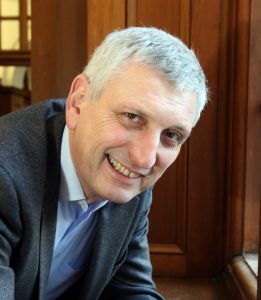
Professor Hywel Thomas
Principal Investigator
Professor Hywel Thomas is Pro Vice-Chancellor, Research, Innovation and Engagement, Cardiff University. Professor Thomas is also a Professor of Civil Engineering, Director of the Geoenvironmental Research Centre (GRC) and a UNESCO Professor in the Development of a Sustainable Geoenvironment. His research interests cover a wide range of geoenvironmental issues, from coupled multiphysics/geochemistry flow problems in soils and rocks, through to sustainability issues in general.

Dr Manju
Research Associate
I joined Geoenvironmental Research Center (GRC) in Nov. 2010 and am currently involved in Seren project. SEREN is £10 million European Regional Development Fund (ERDF) funded project. I lead the Ground Source Heat pump package and my current primary responsibilities are to ensure effective alignment and address expertise gaps for on-going and new research work and providing strategic leadership and guidance in developing, implementing a coherent research for sustainable intensification in the Ground source heat pump technology for Small and Medium scale enterprises.
Prior to joining Cardiff University, I worked at Bauhaus Universität Weimar, Germany (Jan.2007-Dec.2008). There I worked to understand the physico-chemical behaviour of compacted bentonites and bentonite-sand mixtures for barrier design of nuclear waste disposal system.
My work experiences include area of low carbon technology, nuclear waste disposal system, and contaminated soil behaviour and remediation, a PhD in Engineering (Geo-environmental Engineering) and a certification in “Leadership and Management Development Programme for Research Team Leaders”.
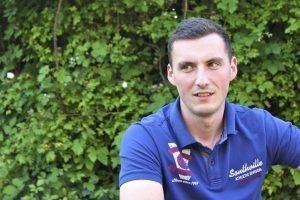
Dr Renato Zagorscak
Research Associate
Renato is a Research Associate and Work Package Leader in “Unconventional Gas” aiming to make significant advances beyond “state of the art” and evaluate the potential of deep lying coal seams for the development of Underground Coal Gasification (UCG) and Coal Bed Methane (CBM). He holds a PhD in Geoenvironmental Engineering, MSc in Mining Engineering and BSc in Geoengineering with over 4 years of experience in various working environment.
Renato joined GRC in 2013 as a member of the ERDF funded £10.1 million SEREN project to study the THM behaviour of porous media in response to geo-energy applications. Shortly after joining the GRC, he has started to read for a PhD in relation to reactive high pressure gas transport in coal. Following on from the SEREN Project in 2015, he has been employed to continue both experimental and computational research as a member of the newly appointed £24.5 million FLEXIS project as a part of the carbon sequestration work package. From December 2016, Renato has been appointed a role of “Unconventional Gas” Work Package Leader to coordinate work on UCG and CBM related research activities.
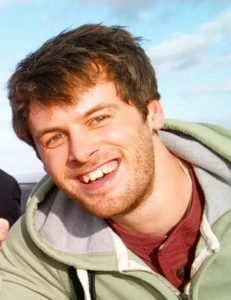
Dr Lee Hosking
Research Associate
My research interests lie in the computational modelling of coupled thermal, hydraulic, chemical and mechanical (THCM) behaviour in the geoenvironment. I am particularly experienced in the study of reactive transport processes in fractured rock in response to high pressure gas injection and displacement. It was in this area that I developed a theoretical and computational modelling platform as part of my doctoral research at Cardiff University’s Geoenvironmental Research Centre.
Throughout my PhD and into my current post, I have applied the developed model in the study of geological carbon sequestration, a technology involving the isolation of carbon dioxide in the geoenvironment that would otherwise be emitted into the atmosphere. As part of an integrated energy system, carbon sequestration is widely regarded as a key part of strategies for climate change adaptation and mitigation.
As leader of the FLEXIS work package on Carbon Sequestration in Coal and Soil, my ambition is to help coordinate work in this area to ultimately enhance our understanding of the geoenvironment’s role in carbon management. This work is being undertaken alongside partners at Aberystwyth University, Bangor University, and Tata Steel, with the overarching aim of participating in the development of energy systems technologies at the FLEXIS demonstration site centred on Tata Steel’s Port Talbot Works.
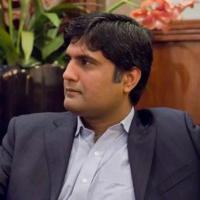
Dr Irfan Muhammad
Research Associate
Dr Muhammad Irfan is leading the Geoinformatics and Environmental Monitoring work package of the FLEXIS project. His core areas of research are Spatial Decision Support Systems (SDSS), Web-GIS, GeoApps, Geodatabase and spatial analysis. He has recently developed an integrated, multicriteria, spatial decision support system, incorporating environmental, social and public health perspectives, for use in geoenergy and geoenvironmental applications. This system utilises a number of artificial intelligence and multi criteria decision analysis techniques to enhance the effectiveness of the spatial decision making process.
His current research involves Public Participatory Web GIS platforms to incorporate local spatial knowledge into the decision making process and for conflict resolution in spatial planning. He is also working at active remote sensing techniques, e.g. Light Detection and Ranging (LiDAR) and Synthetic Aperture Radar (SAR) for different geoenergy and geoenvironmental applications. Irfan is also working on the local energy demand & supply mapping to support initiatives towards sustainable off grid local communities.
James Whittaker
Research Assistant
I am a Research Assistant and PhD student working on the FLEXIS project, specialising in passive seismic monitoring of unconventional gas resources. My PhD project involves calculation of fracture parameters from passive seismic datasets. These parameters are invaluable to well engineers during the process of extracting unconventional gas and ensure that the process is efficient and carried out in an environmentally safe manner. I have worked in the geophysics industry for over 6 years for companies that specialise in the geotechnical and energy sectors. This included CGG, a major service provider for the oil and gas sector, where I was processing and developing new products from legacy seismic data. Previously I was a field geophysicist working on geotechnical projects across the country including Sizewell nuclear power station and the Crossrail project working for Soil Mechanics. My academic background is in exploration geophysics which gave me an excellent grounding in seismic data analysis which I can apply to problems both in the geotechnical and energy sectors.
Hishiv Shah
Research Assistant
I am a Research Assistant working on the FLEXIS project, specialising in Geographical Information Systems (GIS). My recent work at Cardiff University has included mapping the potential for water source heat energy in Wales, investigating the feasibility of a district heating network the Llynfi Valley, and developing a methodology to detect obstructions around overhead power lines. I have worked within the GIS industry for several years, having previously worked as a Research Technician at the Geodata Institute in Southampton, and prior to that worked as a GIS Analyst in local government. My academic background is in Geography and Environmental Sciences, which gives a good grounding in the concepts underpinning GIS applications.
Dr Jack Barnard
Research Assistant
Jack studied for an MSci in Geoscience at Durham University from 2005-2009. This was followed by a PhD studying the development of a particle tracking model for chemical reactions and sorption behaviour and application of particle tracking methods to the simulation of soils contaminated with heavy metals in the School of Engineering and Computing Sciences, Durham University.
Jack joined the Geoenvironmental Research Centre at Cardiff University in 2014. His research interests are the effects of small scale heterogeneity on the behaviour of chemical transport and reactions in porous media and bacteria; numerical modelling of soil carbon behaviour and storage; and numerical modelling techniques including particle tracking methods and agent based modelling.
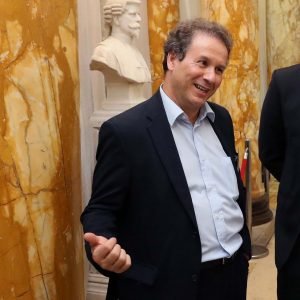
Professor A (Manu) Haddad
Principal Investigator
Manu Haddad, FIET, is Professor of High Voltage Engineering at the School of Engineering, Cardiff University. He is also Director of the Advanced High Voltage Engineering Research Centre and the Morgan-Botti Lightning Laboratory. His research interests are in overvoltage protection, insulation systems, insulation coordination and earthing of electrical energy systems amongst others.
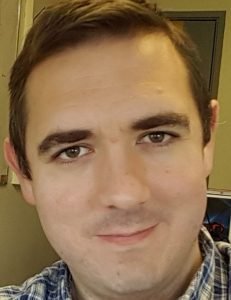
Dr Stephen Robson
Lecturer
Dr Stephen Robson’s research interests are in the areas of condition monitoring, next generation narrowband Power Line Communication and Fault location on high voltage electrical networks. In 2012, he was awarded a PhD for his work on power line communication and fault location on high voltage distribution networks. He was subsequently appointed Lecturer in the Advanced High Voltage Engineering Research Centre. Since his appointment, he has conducted several research projects in collaboration with industry. In 2015, he was principal investigator for a National Grid funded project on the topic of non-contact measurement of trapped charge. Between 2013 and 2016, he was principal investigator on two Power Networks Research Academy (PNRA)/EPSRC funded projects on the development of an integrated power line communication and condition monitoring device for 11 kV networks. Presently, he is co-investigator on the “Environmentally Friendly Electrical Power Plant and Insulation Plant” work package of the £24M, Cardiff University led FLEXIS project. Stephen is a member of the IEEE and a steering committee member of the Universities High Voltage Network.
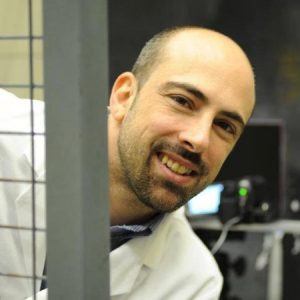
Dr Maurizio Albano
Lecturer
Dr Maurizio Albano received his 5-year degree (M.Eng.) in 1999 and then the Ph.D. degree in electrical engineering from the University of Padova, Italy in 2003. In 2005 he was awarded post-doctoral grant by University of Padova, Italy. In 2006 he joined the Advanced High Voltage Engineering Research Centre and he is now Lecturer at Cardiff University. His present fields of research are insulation co-ordination, electromagnetic transients and magnetic and electric fields calculations, air insulated compact substations and overhead line insulator design. He has published over 40 papers. He is a Member of IET and IEEE.

Dr. Phillip Widger
Research Associate
Dr. Phillip Widger received the Ph.D. and B.Eng. degrees in electrical and electronic engineering from Cardiff University, UK in 2014 and 2010 respectively. Between 2010 and 2014, he worked towards his Ph.D. degree in the Advanced High Voltage Engineering Research Centre at Cardiff University, Institute of Energy, and School of Engineering. His research is focused on alternatives gases to SF6, specialising in gas mixtures of CF3I, for use in distribution and transmission networks. SF6 is a global warming gas with a global warming potential approximately 23,900 times that of CO2 and a very long atmospheric lifetime. Research is focused on environmentally friendly alternatives that can safely insulate high voltage electrical power equipment for a more sustainable future electricity network.
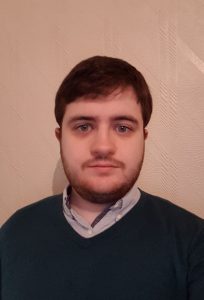
Meirion Hills
Research Assistant
Meirion Hills works as a FLEXIS Research Assistant at Cardiff University working on the Environmentally-Friendly Electrical Power Plant and Insulation Work Package under the supervision of Prof. A. Haddad. Meirion is fluent in Welsh and has an Integrated Master’s Degree in Physics (MPhys) from Cardiff University, obtained in July 2016. His MPhys project involved studying nanostructured materials as potential photocatalysts for water. Meirion started working for Cardiff University in January 2017 and helps to maintain the laboratory and assists in any experiments conducted.
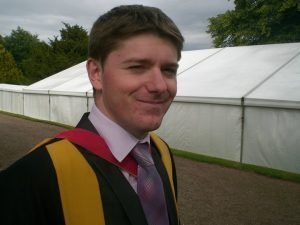
Christian Laycock
Lecturer
There is increasing interest in converting waste streams into electrical power, heat or useful fuels and chemicals such as hydrogen, methane and ammonia. Solid Oxide Cells (SOCs) are high temperature (500-1000°C) energy conversion devices which offer a high efficiency and flexible way to achieve these types of conversions. They are ideally suited to stationary applications and are capable of utilising a wide range of fuels and feedstocks including hydrogen, natural gas, waste gases and waste heat. The aims of my research are to investigate the chemistry of fuel and feedstock processing in SOC devices running in fuel cell and electrolysis mode in order to increase their performance, durability and economic viability. In particular, my research focusses on the effects of fuel variability and fuel contaminants on the behaviour and outputs of SOCs running on gases derived from biomass and waste streams.
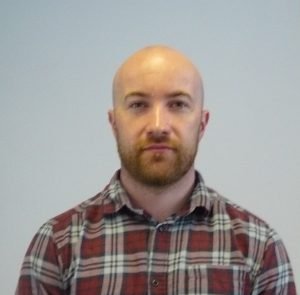
Dr Alistair Reid
Lecturer
Dr Alistair Reid has over 10 years of research experience in the field of electrical insulation diagnostic testing and has published over 50 papers. In 2007, he was awarded a PhD for research on partial discharge. From 2007-2011 he worked within the Institute for Energy and Environment at the University of Strathclyde as co-investigator on two major EPSRC research projects on advanced radiometric techniques for partial discharge detection. In 2011 he gained a Research Fellowship at Glasgow Caledonian University and in 2013 was awarded a Visiting Research position at California Institute of Technology's Department of Computing and Mathematical Sciences. He was then appointed as a Lecturer within the School of Engineering and Built Environment at Glasgow Caledonian University where he worked as principal investigator at GCU on the project Online HVDC Cable Monitor, funded by the Department of Energy and Climate Change. He is presently a Lecturer at Cardiff University, conducting research within the Advanced High Voltage Engineering Research Centre. Alistair is a Senior Member of the IEEE.
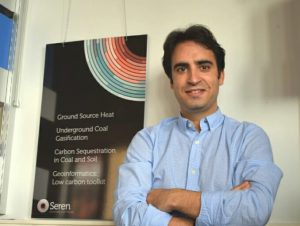
Alejandro Lopez
Research Assistant
Alejandro holds a First Class MSc degree in Industrial Engineering and a BEng degree in Mechanical Engineering from University of Malaga (Spain). In 2007 he joined a technical office to work as a designer of hydraulic, water heating and electricity installations. After finishing his Master Degree in 2011 he worked in an energy company as a Design Engineer, later on he was awarded a grant by the Spanish Ministry of Education to work in a Spanish company with operations in India where he was part of the operations team. In 2014, Alejandro joined Geoenvironmental Research Centre’s (GRC) as a Research Assistant after 9 month visiting period as an external member of the research group based in University of Malaga “Operations and Sustainability”. Currently he works in WP9 Smart Thermal Energy Grid of the FLEXIS project.

Dr Min Chen
PhD Candidate
PhD student, supervised by Prof H R Thomas and Dr L Hosking. His research interest involves coupled thermal, hydraulic, chemical and mechanical (THCM) behaviour of porous media in response to carbon dioxide sequestration in coal and soil. Developing a theoretical and computational modelling for high pressure gases transport in porous media is leading part of his doctoral research at the GRC.
Education 2016- : PhD Geoenvironmental Engineering, Cardiff, UK.
2014-2016: MS Mining Science, China University of Mining and Technology, China.
2010-2014: BS Mining Science, Taiyuan University of Technology, China.
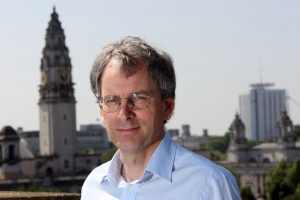
Professor Nick Pidgeon
Principal Investigator
Professor Nick Pidgeon is Director of the Understanding Risk Research Group within the School of Psychology at Cardiff University and Professor of Environmental Risk. His research looks at public attitudes, risk perception and public engagement with environmental risks and energy technologies and infrastructures. He is a Fellow of the Society for Risk Analysis and was awarded an Honorary Fellowship of the British Science Association in 2011 and an MBE in the 2014 Queen’s Birthday Honours for services to climate change awareness and energy security policy.
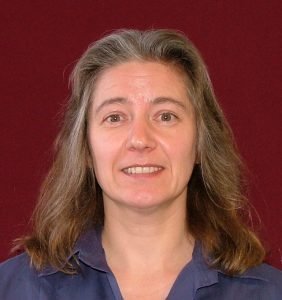
Professor Karen Henwood
Principal Investigator
Karen Henwood is a Professor in Cardiff University’s School of Social Sciences and Understanding Risk Group. She is a Flexis PI working with Professor Nick Pidgeon (WP17). Her research investigates how it is possible for people to meet the challenges posed to themselves and society by the dynamics of environmental risk and socio-cultural change, including ones connected to wider transitions in energy systems. She has extensive methodological expertise in interpretive research approaches within empirical social science, including innovative forms of stakeholder and public engagement. Her publications report findings from academic research conducted in the field of risk and identity studies. In 2013 she co-authored a foresight policy review with Pidgeon (2013) on Risk and Identity Futures as part of the wider UK Government Office of Science and Technology’s Future of Identities Project. She conducted multiple community case studies within the ESRC’s SCARR (Social Contexts and Responses to Risk) network (2003-2008), and led an in depth longitudinal investigation as co-investigator on the ESRC’s major qualitative longitudinal initiative (Timescapes) (2017-2012). She was PI for an AHRC network Homing in: Sensing, Sense-Making and Sustainable Place-Making (2013-4), collaborating with arts scholars and practitioners and local communities on issues of risk and environmental controversy. She led the Energy Biographies project (2011-2016) within the RCUK’s Energy and Communities joint venture (www.energybiographies.org). This work is now being taken forward as part of Flexis. She is currently also co-lead investigator (with Pidgeon) on the social science work packages within the NERC funded Coastweb project.
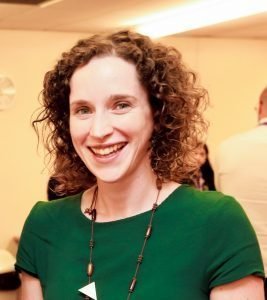
Dr Fiona Shirani
Research Associate
I am a Research Associate in the School of Social Sciences at Cardiff University. I have been working on qualitative longitudinal projects since 2007 with an interest in methodological innovation, in particular, developing techniques to help people talk about the future. Making connections with the future is something people are often expected to do in relation to energy and environmental issues, yet these connections may be difficult to create, maintain or discuss. My research interests include family relationships, life course transitions and the impact these have on people’s planned futures and present lives. From 2011-2015 I worked on the Energy Biographies research project, which explored people’s everyday energy use in the context of their past experiences and anticipated futures. A key aspect of this work was exploring how people’s relationships to others (e.g. as family members, colleagues or friends) influenced energy use. These issues will be taken forward in work on the FLEXIS project, where I will be leading the development of our S2 work stream – System Change and Everyday Life.
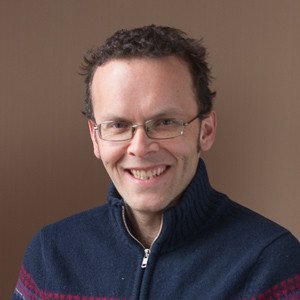
Dr Chris Groves
Research fellow
I am a research fellow in the School of Social Sciences at Cardiff. With a background in philosophy and sociology, my research interests focus on how people and institutions negotiate and deal with an intrinsically uncertain future – one that is increasingly imagined against the backdrop of global environmental change and accelerating technological innovation. Along with the ethical and political implications of a range of future-oriented discourses and practices (e.g. risk management, precautionary regulation, and building resilience), my work has examined how our ideas about what it means for individuals and whole societies to take responsibility for their futures change alongside technological transformation. From nanotechnology and personalised genetic testing, to the decarbonisation agenda examined by Energy Biographies and now Flexis, the moral aspects of everyday life and of public policy are shifting alongside efforts to plan and remodel the social and natural worlds. These efforts are shaped by images of more efficiently managed, better governed, ‘smarter’ futures in which people increasingly take more responsibility for a whole range of different aspects of their lives. Building links between qualitative social science and normative ethics can help understand both how technologies and values change alongside each other, and what is really at stake in these imagined futures.
My recent monograph Care, Uncertainty and Intergenerational Ethics (Palgrave Macmillan, 2014) and the earlier Future Matters: Action, Knowledge, Ethics (Brill, 2007), co-authored with Professor Barbara Adam (Social Science, Cardiff University), examines these themes in depth, along with a variety of other recent publications.
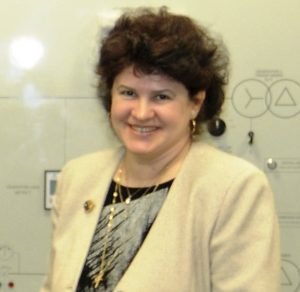
Dr. Liana M. Cipcigan
Reader
Dr. Liana M. Cipcigan is Reader at Cardiff University’s School of Engineering, Centre for Integrated Renewable Energy Generation and Supply. She has previously worked at Durham University as a Research Associate, at Alberta University, Canada as a Research Fellow and at Technical University of Cluj-Napoca, Romania as a Senior Lecturer. Her research experience covers power system analysis and control, Smart Grids and Distributed Energy Resources integration in distribution networks. She is leading the research of Electric Vehicles integration and control in distribution networks. She has collaborated widely with industry, more recently during her placement as Royal Academy of Engineering Industrial Fellow at National Grid, working in the Energy Insights department. She contributed at 2015 Future Energy Scenarios (Chapter 7 Electricity Storage). These scenarios form the basis of National Grid network planning and is the industry standard for the future energy landscape. She is the PI of the Innovate UK / EPSRC project of technology transfer “Ebbs and Flows Energy Systems”. In this collaborative project with School of Computer Science and Informatics she developed a cloud-based Virtual Power Plant for controlling static batteries and V2G storage from electric vehicles for demand side response. She is a member of BSI technical committee ESL/120 Electrical Energy Storage and a nominated expert on IEC/TC120/WG1 Electrical Energy Storage Terminology She was a member of the CEN-CLC eMobility working group on Smart Charging; IEEE P2030.1 working group on “Draft Guide for Electric-Sourced Transportation Infrastructure” and a member of Low Carbon Vehicles Steering Group at the Welsh Government.
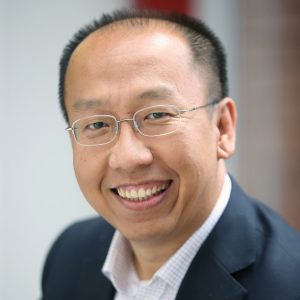
Prof Jianzhong Wu
Co-Principal Investigator
Jianzhong Wu joined Cardiff University in June 2008 (Lecturer 2008; Senior Lecturer 2013; Reader 2014; Professor 2015). From 2006 to 2008, he was a Research Fellow in the University of Manchester. He received his PhD in 2004 from Tianjin University, China and then worked there from 2004 to 2006. His final position in Tianjin University was Associate Professor. Prof. Wu researches on Smart Grid and energy infrastructure (modelling, analysis and design of integrated smart energy supply networks,i.e. integrated electricity/gas/heating/cooling/hydrogen networks). He has contributed to a number of EU and UK funded projects as a Principal Investigator or a Co-Investigator. He is a co-author of book “Smart Grid: Technology and Applications” (2012, Wiley).Electrical & Electronic Engineering
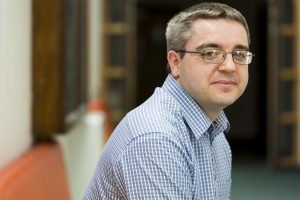
Dr Gareth Owen
Senior Lecturer
Gareth Owen received a Ph.D. degree from Imperial College London in 2003. He subsequently worked in the research group of Professor John A. Gladysz, first as a postdoctoral researcher and later as an Alexander von Humboldt Research Fellow. Dr. Owen returned to the UK following the award of a Centenary Ramsay Memorial Research Fellowship which was hosted at University of Bristol. He was later awarded a Royal Society Dorothy Hodgkin Research Fellowship again at Bristol. In 2012, he was awarded an Organometallics Fellowship prize from the American Chemical Society. Dr. Owen joined the University of South Wales as a Senior Lecturer in Inorganic Chemistry in 2013. He has published 45 research articles and reviews during his research career to date. His research is currently also funded by the Leverhulme Trust and KESSII agencies. His main research interests lie in the areas of organometallics and homogeneous catalysis with a particular focus on hydrogen activation. This involves the chemistry of boron based ligands which act as reversible hydrogen atom stores and the investigation of hydrogen shuttle-type transformations for the development of novel transformations.

Emma Blow
Research Project Co-ordinator
Emma is a Research Project Co-ordinator at the University of South Wales. She has worked in the University since 2010 supporting the delivery of externally funded research activities. Emma has a BA in Business Studies and has recently completed PRINCE2. Before joining the University of South Wales Emma worked as a Management Accountant for a large call centre in Dublin and also spent some of her career as a European Project Officer at the Welsh Development Agency. Emma enjoys running and has run the London and Dublin marathon.
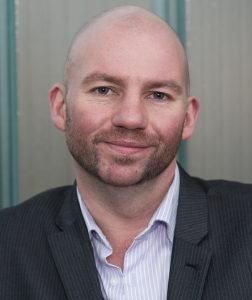
Dr Jamie Lewis
Engagement and Cross Cutting Themes Coordinator
Dr Jamie Lewis has a background in engineering and now sits on the operational management group of the Flexis team. He coordinates the groups monitoring and evaluation activities and is also responsible for the cross cutting themes of sustainable development, equal opportunities and talking poverty and social exclusion. Jamie has experience of delivering EU funded projects and engagement between business and academia through his experience with the successful Seren project. Jamie also has an interest in community energy development and third sector activities in Wales and is a fluent Welsh speaker.
Dr Erin Roberts
Research Associate
I am a Research Associate working within an interdisciplinary space in the School of Social Sciences at Cardiff University. My disciplinary background is in Human Geography, which is reflected in my research interests; namely how the relationships people have with other people, places (particularly those that are rural) and things shape their everyday lives and consequent energy consumption. This was the main focus of my recently completed doctorate, which focused on the dynamics of everyday energy consumption in households in rural north-west Wales.
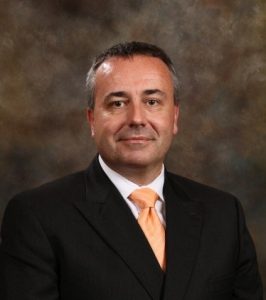
Professor Andrew Barron
Principal Investigator
Professor Andrew R. Barron is the Sêr Cymru Chair of Low Carbon Energy and Environment, where his research involves the application of nanotechnology to fundamental problems in energy research. He is also the founder and director of the Energy Safety Research Institute (ESRI)
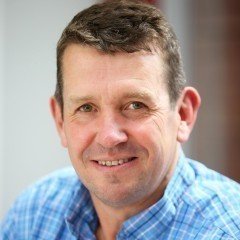
Professor Philip J Bowen
Principal Investigator
Professor Phil Bowen is Director of Cardiff University's Gas Turbine Research Centre. He worked in the private Energy Sector for 5 years before joining Cardiff University in 1994. He has published over 200 papers and been an investigator on over £30M of research contracts. He is currently a member of the RCUK Strategic Advisory Committee (SAC) on Energy and the IEA Technology Collaboration Programme in 'Clean and Efficient Combustion'. He was DIrector of Cardiff School of Engineering 2012-2015 and is a Fellow of the Learned Society of Wales, IMechE and Institute of Physics.


